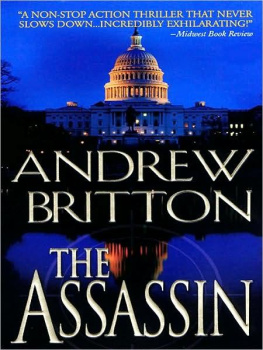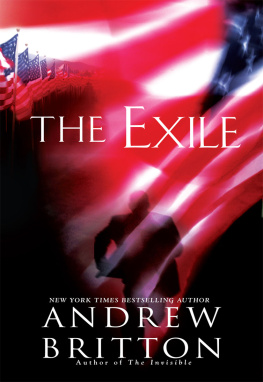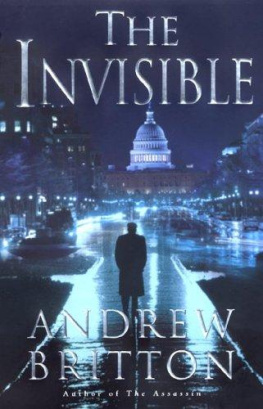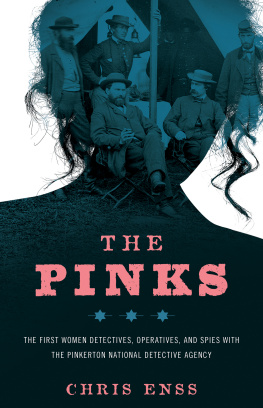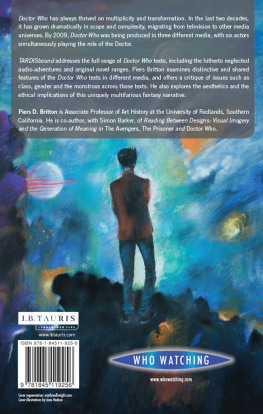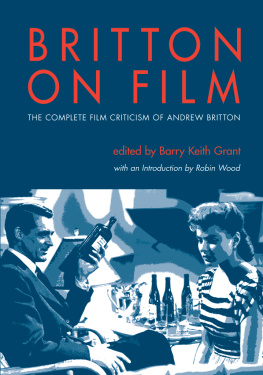Andrew Britton - The Operative
Here you can read online Andrew Britton - The Operative full text of the book (entire story) in english for free. Download pdf and epub, get meaning, cover and reviews about this ebook. genre: Detective and thriller. Description of the work, (preface) as well as reviews are available. Best literature library LitArk.com created for fans of good reading and offers a wide selection of genres:
Romance novel
Science fiction
Adventure
Detective
Science
History
Home and family
Prose
Art
Politics
Computer
Non-fiction
Religion
Business
Children
Humor
Choose a favorite category and find really read worthwhile books. Enjoy immersion in the world of imagination, feel the emotions of the characters or learn something new for yourself, make an fascinating discovery.

- Book:The Operative
- Author:
- Genre:
- Rating:4 / 5
- Favourites:Add to favourites
- Your mark:
- 80
- 1
- 2
- 3
- 4
- 5
The Operative: summary, description and annotation
We offer to read an annotation, description, summary or preface (depends on what the author of the book "The Operative" wrote himself). If you haven't found the necessary information about the book — write in the comments, we will try to find it.
The Operative — read online for free the complete book (whole text) full work
Below is the text of the book, divided by pages. System saving the place of the last page read, allows you to conveniently read the book "The Operative" online for free, without having to search again every time where you left off. Put a bookmark, and you can go to the page where you finished reading at any time.
Font size:
Interval:
Bookmark:
Andrew Britton
The Operative
PROLOGUE
ISLAMABAD, PAKISTAN 2010
Asif Kardar crushed the brake when he heard the hiss of the tire through the open window of the bread truck. The pads were old, and they squealed as the squat white vehicle lurched to a halt. The hard stop caused the peppermint air freshener to swing in long arcs from the rearview mirror and a marble in the ashtray to smack violently front to back.
The young man sighed as he looked out the mud-splashed windshield, stared at the wide dirt street awash with the red of the rising sun. He had only a half dozen or so blocks to go before he reached the market. Why now?
Because Allah willed it, thought the devout Sunni. Why else does anything happen?
A boy on a badly dented bicycle passed him. Then another. And a third. They waved as they passed. Asif knew them. They shared breakfast at the coffeehouse some mornings-though they didnt today.
Why?
He couldnt remember. It didnt matter.
The young men were workers who lived near Asif, in cinder-block shacks in the katchi abadi, the slum off Service Road West 110. They were commuting along Seventh Avenue, past the doctors offices, banks, and parcel companies, and then on to Kashmir Highway, near the universities, post offices, and the always popular Sunday market, on their way to the richer sections of the capital, where they were employed as street cleaners. All of them saw the irony in that, yet all of them were happy to have jobs. It was either this or the military.
Asif found himself grinning. In the year he had been driving this route, he had never suffered a blowout. He supposed he was due. And it was no ones fault, he knew. Metal shards were everywhere in the streets of the slum: pieces of discarded appliances, rusted tools, even belt buckles and pocket watches.
And the remnants of car bombs. There had been three in the last year, all of them accidents. They were meant to blow up after leaving here and arriving at their destinations-some government building or military installation. Except for the loud bangs, the children liked it when vehicles blew up. They quickly came and collected the fenders and fan blades to dig in the rubble for treasure. To a child, anything free was a treasure.
Asif s smile drooped as he considered his situation. He looked at his watch.
Drive on, he thought. He could probably make it, even with a rim that was clanking and sparking.
The morning sun was rising higher, clearing the clay tile roofs of the structures that lay ahead. This was the better section of the slum. Where he lived, the roofs were all corrugated metal. The daily sun-scorched metal created such intense heat within the homes that being outside in direct sunlight was preferable to being slow cooked alive inside. And while the temperature on the roof of the buildings was occasionally more comfortable for sleeping, the distorted, grooved surface was no place to remain grilling for too long. He peered at the buildings. There was something he was supposed to do
He shifted gears, started the truck ahead slowly. What was it?
Clanking and growling, the truck rounded a sharp curve. Two hundred or so meters to the east he noticed soldiers standing watch outside a Humvee. It was the end of the slum. They were parked in front of a one-story building that was used by South Korean Christians to feed hungry children. At one time it was a police recruiting station. It was firebombed, but the missionaries had plastered it over. That was what outsiders did. They covered things with paint and activity and believed that they had begun to heal what was wrong underneath. The soldiers were looking at him.
Asif stared back. He had a spare tire. He should stop and replace the blown-out one. If he continued driving, the men would wonder why he was willing to do permanent damage to his truck. Spare parts were not plentiful, unless one were willing to hammer out the bent and broken pieces found in scrap yards, and what he was doing was not just odd. It was suspicious.
So why are you doing it?
He had no good answer to that.
He slowed, but he did not stop. Something told him to drive on.
The early morning air was already warm, and the driver was perspiring. He was wearing a white silk kurta, a hand-me-down from his elder brother who was in the army. He dragged a sleeve across his forehead and looked anxiously ahead. There was a Shiite mosque across the street. Men were beginning to arrive for prayer. Something about it seemed familiar-not just because he had seen it before as he drove by. It was something else.
The street was suddenly paved beneath him. The truck chugged over the lip, the naked rim cutting the asphalt, the glove compartment snapping open, the marble rolling, the air freshener smacking the windshield. Three of the eight soldiers started in his direction. The one in front had his arms raised, motioning for him to stop.
You mustnt, Asif told himself.
If he stopped, they would examine his truck. That was what the soldiers did at checkpoints. The sweat was no longer only on Asif s brow; it was everywhere. They would surely see that; the sun had just cleared the low rooftops and, shining redly, was striking him directly. He felt as though he were naked, exposed, and starting to melt. One of the soldiers talked into a radio. Asif couldnt make out what he was saying, but he knew that tone, flat and low. They were assuming that his intentions were hostile.
They werent, were they?
He was confused.
Asif reached for the bottle of water that lay on the seat beside him. He saw a few young families coming down the street, toward the Christian building. The doors would not open for another hour, but for many of these impoverished souls-many Afghan orphans who had been taken in by relatives, families who had come to Islamabad to escape the Taliban or the war-this would be the only meal of the day, the only food they had enjoyed since the previous mornings charity.
Asif looked ahead, past the soldiers and toward the mosque. The Shiites were gathering in larger numbers.
The murderous fools, he thought. They believed that only the heirs of Al, the fourth caliph, were the true successors of Muhammad the Prophet. Their idiocy had bred a thousand years of bloodshed. You hate them, dont you?
Do you? he wondered.
Rokna! the soldier in front shouted in Urdu. Stop! He had already unshouldered the G3A3 assault rifle and was aiming it at the truck.
Yes, Asif decided. He hated the Shias. And the military.
The young Pakistani put the water bottle down and pressed hard on the gas. He reached toward the sun-faded brown dashboard as gunfire shattered the window. Bullets punched through Asif s shoulders and chest, and he was knocked back hard against the seat as he pressed the cigarette lighter. Bloody and no longer in control of his dying body, he was unable to reach the marble
Thirty pounds of plasticized pentaerythritol tetranitrate explosives wired to the underside of the dashboard exploded. The truck literally expanded as the concussive force of the PETN hit the inside walls, splitting them. The vehicle vomited engine parts to the front and sacks full of nails, bolts, and glass to the rear. It pushed a wall of sound in all directions. The soldiers were simultaneously knocked back and torn open, rusted chrome, burning canvas, and grotesque body parts flung in all directions, as the blast rolled toward an empty lot to the south and the mosque to the north. The twisted chassis of the old truck tumbled toward the ancient structure, stamped forcefully across the door and lower facade before falling back onto the street. Several men, just arriving, were crushed by the initial strike, while several inside were injured by falling lanterns and flying pieces of broken stone. But the structure itself held.
Font size:
Interval:
Bookmark:
Similar books «The Operative»
Look at similar books to The Operative. We have selected literature similar in name and meaning in the hope of providing readers with more options to find new, interesting, not yet read works.
Discussion, reviews of the book The Operative and just readers' own opinions. Leave your comments, write what you think about the work, its meaning or the main characters. Specify what exactly you liked and what you didn't like, and why you think so.

